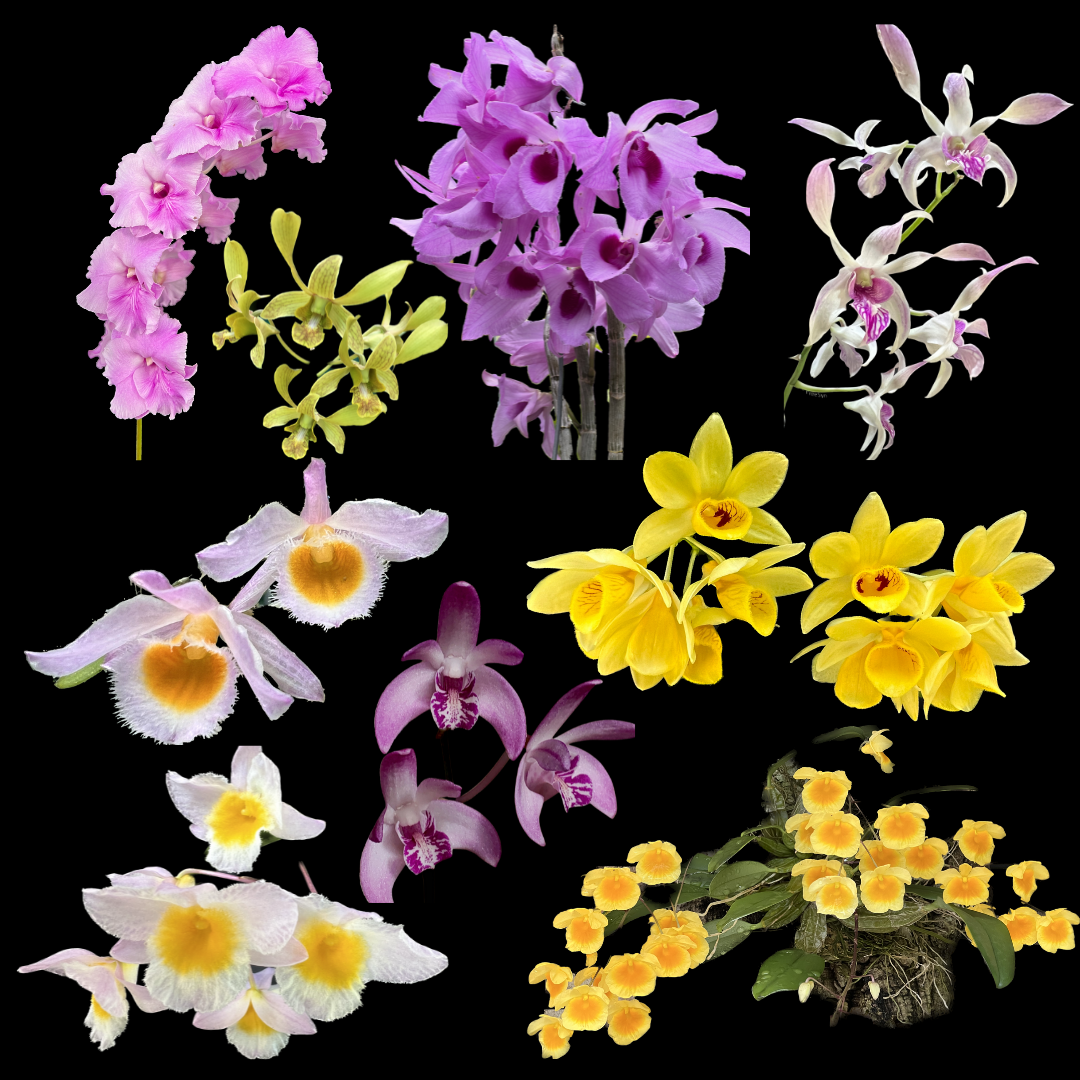
Growing Dendrobium Orchids
Share

Dendrobiums, with their vibrant colors and intricate shapes, are one of the most popular orchid species among gardening enthusiasts.
These magnificent flowers come in a wide range of varieties, each with its unique charm. While their exotic appearance might give the impression of a finicky plant, growing dendrobiums can be a rewarding and enjoyable experience for any orchid lover. This article serves as a guide, offering valuable insights and tips on successfully cultivating dendrobiums.
Understanding Dendrobiums:
Dendrobiums are epiphytic orchids that naturally thrive in diverse climates, ranging from tropical rainforests to arid regions. With more than a thousand species and even more hybrids, dendrobiums present a wide array of growth habits and flowering patterns. Some varieties have long, cane-like pseudobulbs, while others display sympodial growth with compact, bushy habits. By understanding the specific requirements of your dendrobium variety, you can create an ideal environment for your plants to flourish.
Light and Temperature:
Proper lighting is crucial for dendrobiums' growth and flowering. Most dendrobiums thrive in bright, indirect light. A balance must be struck, as excessive light can scorch the leaves, while insufficient light may hinder flower production. Generally, providing 50-70% shade is recommended. Additionally, dendrobiums require a significant temperature difference between day and night to stimulate flowering. Daytime temperatures around 75-85°F (24-29°C) and nighttime temperatures around 55-65°F (13-18°C) are ideal for many varieties.
Watering and Humidity:
Dendrobiums prefer a slightly drier environment compared to other orchids. It's important to allow the growing media to dry out between waterings. The frequency of watering depends on factors such as temperature, humidity, and the type of potting medium used. As a general rule, water your dendrobiums when the pseudobulbs begin to shrink slightly. Maintaining humidity levels around 50-60% is beneficial for healthy growth, but good air circulation is equally important to prevent fungal diseases.
Potting Mix and Repotting:
Using the right potting mix is essential for the well-being of your dendrobiums. A well-draining mix that retains moisture without becoming waterlogged is ideal. Commonly used components include coarse bark, sphagnum moss, perlite, and charcoal. Repotting should be done every two to three years or when the potting mix breaks down. Choose an appropriate-sized pot, as dendrobiums prefer a slightly snug fit. Repotting should be performed after flowering to minimize stress on the plant.
Fertilizing and Nutrients:
Dendrobiums are moderate feeders and require a balanced diet to thrive. During the growing season, which typically extends from spring to fall, use a balanced orchid fertilizer with a ratio of around 20-20-20 or 10-10-10. Reduce the frequency and strength of fertilization during the dormant period to allow the plant to rest. Additionally, foliar feeding can be beneficial for the plant's overall health, as it allows for efficient nutrient absorption.
Pest and Disease Control:
Vigilance is key when it comes to pest and disease control. Common pests that may affect dendrobiums include aphids, scale insects, mealybugs, spider mites, and dendrobium beetle. Regularly inspect your plants for any signs of infestation, and if detected, take appropriate measures such as using insecticidal soaps or horticultural oils. Fungal and bacterial diseases can also pose a threat to dendrobiums. Stay vigilant in your inspections, and take appropriate preventative and repair action as required, using quality fungicides. Orchids showing signs of a virus should be isolated from your other orchids, and disposed of if confirmed.
If you would like to learn more about growing orchids, search for your local orchid society, visit and join the group. You will find them very friendly, and willing to help you learn how to grow your orchids well. They will also hold shows and have other fun activities for you to enjoy.
Have a great week,
Peter Johnson
Orchids In Print